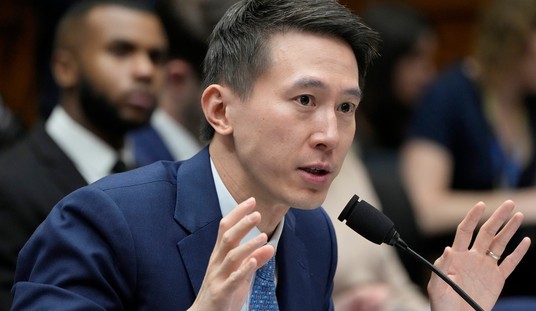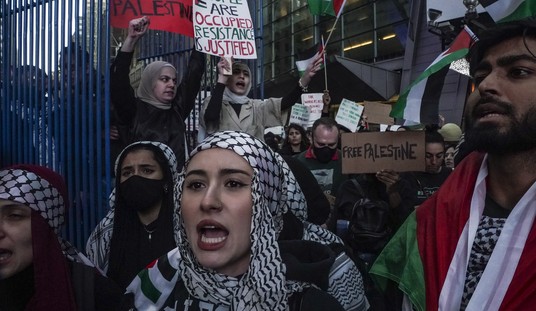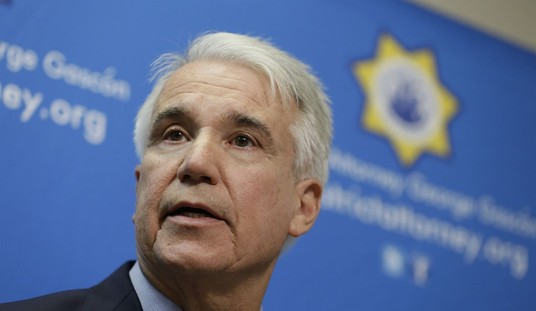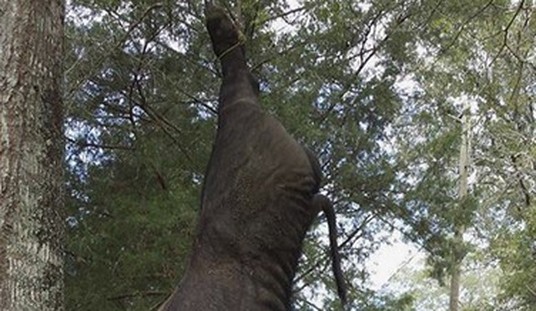It’s funny in hindsight that what finally got Brad Parscale fired as campaign manager was poor attendance at a Trump rally in June, not spending hundreds of millions of dollars in campaign money for months to little effect on the status of the race. That seems like a microcosm of the inner circle’s priorities: “We’ve all squandered astronomical sums from time to time but bruising POTUS’s ego is unforgivable.”
They’ve spent $800 million so far and, for their trouble, currently enjoy about a 25 percent chance of victory this fall. They’re scrambling to keep pace with Biden despite having had an enormous financial advantage when the race began. With their previous approach to spending having fallen flat, where should they refocus during the stretch run to November? I think the answer to that question lies in three little words.
Daily. Boat. Parades.
Anyway:
Under Mr. Parscale, more than $350 million — almost half of the $800 million spent — went to fund-raising operations, as no expense was spared in finding new donors online. The campaign assembled a big and well-paid staff and housed the team at a cavernous, well-appointed office in the Virginia suburbs; outsize legal bills were treated as campaign costs; and more than $100 million was spent on a television advertising blitz before the party convention, the point when most of the electorate historically begins to pay close attention to the race.
Among the splashiest and perhaps most questionable purchases was a pair of Super Bowl ads the campaign reserved for $11 million, according to Advertising Analytics — more than it has spent on TV in some top battleground states. It was a vanity splurge that allowed Mr. Trump to match the billionaire Michael R. Bloomberg’s buy for the big game…
Some people familiar with the budget noted that Mr. Parscale had a car and driver, an unusual expense for a campaign manager. Mr. Trump has told people gleefully that Mr. Stepien took a pay cut when the president gave him the job…
Most visibly, the Trump campaign slashed its August television spending, mostly abandoning the airwaves during the party conventions. In the last two weeks of the month, Mr. Biden’s campaign spent $35.9 million on television, compared with $4.8 million for Mr. Trump, according to Advertising Analytics.
The Times notes that the campaign spent about as much on the Super Bowl ads, to soothe Trump’s ego, as it did in advertising on local TV in Wisconsin, Michigan, Iowa, and Minnesota combined through the end of July. When asked about his questionable priorities, Parscale was defensive, telling the Times that spending decisions were made “in partnership with Ronna McDaniel” and “under the very close eye of the family… No decision was made without their approval.”
I’m of two minds about how much cash the campaign has burned through this year. On the one hand, it’s impossible to argue with Ed Rollins’s logic: “If you spend $800 million and you’re 10 points behind, I think you’ve got to answer the question ‘What was the game plan?’” If they had spent nothing at all and reserved $800 million for the post-Labor-Day stretch run, would Trump be meaningfully further behind right now? Laugh at Biden’s “basement” campaign if you like but it’s verrrrry cost-effective.
On the other hand, given the dynamics of this election, it seems like a huge chunk of campaign spending was destined to be “squandered” no matter what. Trump’s sheer ubiquity in media creates constant pressure towards a “referendum” approach to the election, which helps explain why attitudes about the two candidates have remained largely frozen despite the momentous social and economic upheaval we’ve experienced this year. It’s a truism by now: The race is freakishly stable in a freakishly unstable political climate. Under those circumstances, it’s hard to believe there was some ingenious game-changing ad strategy out there that would have cut Biden’s lead in half if only Parscale had devoted more money to it.
In fact, if I were them, I’m not sure I’d spend another dollar on advertising. Trump’s just going to draw the public’s attention away from that message with his daily antics anyway. They’re better off spending the enormous sum they’ll raise over the next two months on GOTV efforts instead. Trump’s view of the race has always been that Team Red has the numbers to beat Team Blue if only he can get enough of them out to the polls — and that’s sort of true, in that many millions of members of Trump’s base of working-class whites ended up not voting four years ago. If he ends up losing and finds himself enraged about squandered spending, that’s what he should be enraged about. Why wasn’t every available dollar spent on turning out people who are likely to think highly of Trump instead of trying to win over suburbanites, who aren’t?
To the campaign’s credit, they are focused on one aspect of getting out the vote that’s been neglected by Team Biden. They’re knocking on doors, allegedly a million per week, to try to convince residents to turn out for Trump. Democrats aren’t doing that because of the pandemic and insist that they’re not suffering for it. “At first I was nervous, but our response rates on phone calls and texts are much higher and people are not necessarily wanting someone to go up to their door right now,” said a top Biden campaign official to Politico last month. “You get to throw a lot of the rule book out the window and try out new things.” We’ll see. Democrats are relying heavily on mail-in ballots this year; having someone come to your door to remind you to send in your ballot early logically seems like it’d be more effective than a text would.
Bloomberg reports today that Trump is considering spending some of his own money down the stretch to keep pace with Democratic spending. That’s been received skeptically on political Twitter this morning but I’m more credulous about it:
President Donald Trump has discussed spending as much as $100 million of his own money on his re-election campaign, if necessary, to beat Democratic nominee Joe Biden, according to people familiar with the matter.
The billionaire president has talked about the idea with multiple people, though he hasn’t yet committed to any self-funding, according to people briefed on internal deliberations. Though Trump personally contributed $66 million to his 2016 campaign, it would be unprecedented for an incumbent president to put his own money toward winning a second term.
Trump has sought advice about whether he should self-fund as he scrutinizes heavy spending by his team earlier this year that failed to push him ahead of the former vice president in the polls.
He did it before, for a race everyone told him he was destined to lose. Why wouldn’t he do it again, when he enjoys the advantage of incumbency and maybe a well-timed economic rebound this month and next? If he wins, it’ll have been worth it. If he loses, he’ll make the money back in whatever grift he ends up running once he’s out of office. The Trump brand will remain attractive to rank-and-file Republicans for years to come, and given the influence he’s likely to retain over the party’s leadership, all manner of special interests are likely to want to do business with him as a sort of super-lobbyist and GOP kingmaker.
Then again, according to a report in Forbes this morning, he lost $600 million this past year thanks to the pandemic’s effect on resorts and occupancy in office buildings. And of course, since the Trump name is now poison to Democrats, he won’t have the same bipartisan clientele in his next act that he did in his previous ones. If anything, they’ll be organizing boycotts against him. Maybe he’ll decide that he can’t afford to spend on his campaign after all.








Join the conversation as a VIP Member